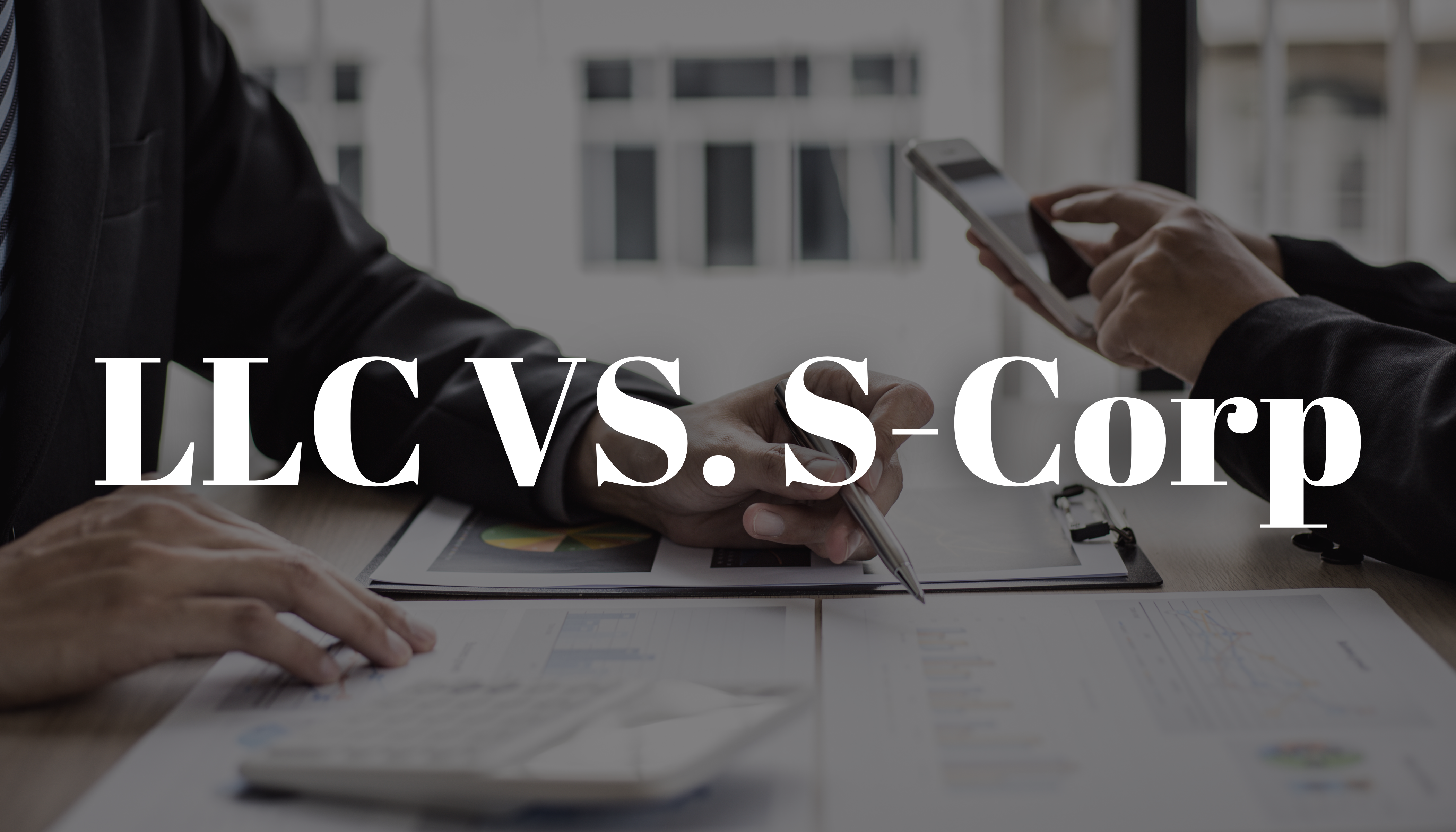Difference Between LLC and S Corp: Which Entity Is Best?

Starting a business? You’ve probably heard the terms LLC and S Corp tossed around, but what is the difference between LLC and S Corp and which one is right for you? If you’re here, chances are you’re trying to figure out the best legal structure for your business—one that saves you money, protects your assets, and makes tax season less of a headache.
The truth is, both LLCs and S Corps have their advantages, but they serve different purposes. Choosing the wrong one could mean paying more in taxes, dealing with unnecessary paperwork, or missing out on key benefits. Let’s break it down in simple terms so you can make the best decision for your business.
Summary/Key Insights
- If you’re just starting out and want a simple setup, an LLC is probably your best bet.
- If you’re making over $40,000 in profit and want to save on self-employment taxes, consider electing S Corp status.
What Is an LLC?
A Limited Liability Company (LLC) is a flexible business structure that offers legal protection for its owners (called “members”). It’s one of the most popular choices for small businesses because it’s easy to set up and maintain.
Key Benefits of an LLC:
- Limited Liability Protection – Your personal assets (house, car, savings) are protected if your business faces a lawsuit or debt.
- Tax Flexibility – LLCs can choose how they’re taxed: as a sole proprietorship, partnership, or even an S Corp.
- Less Paperwork – Fewer compliance requirements than corporations.
Who Should Consider an LLC?
- Solo entrepreneurs or small business owners who want simplicity and protection.
- Business owners who prefer pass-through taxation (profits are taxed only on your personal return).
- Those who don’t want the formalities of a corporation (board meetings, stock issuance, etc.).
What Is an S Corp?
An S Corporation (S Corp) is not a business structure but a tax classification. You can elect S Corp status after forming an LLC or corporation to change how your business is taxed.
Key Benefits of an S Corp:
- Tax Savings on Self-Employment Taxes – Owners can classify some income as salary and the rest as distributions, which aren’t subject to self-employment tax.
- Limited Liability Protection – Like an LLC, your personal assets are protected.
- More Credibility – Some businesses prefer the “Inc.” designation for professional reputation.
Who Should Consider an S Corp?
- Businesses that make at least $40,000–$50,000+ in annual profit (this is where tax savings kick in).
- Owners who are okay with more paperwork in exchange for tax benefits.
- Those who want to scale their business and eventually take on investors.
LLC vs. S Corp: Side-by-Side Comparison
| Feature | LLC | S Corp |
|---|---|---|
| Ownership | Unlimited members | Max 100 shareholders |
| Liability Protection | Yes | Yes |
| Self-Employment Tax Savings | No | Yes |
| Tax Flexibility | Yes | No (fixed tax structure) |
| Paperwork & Compliance | Minimal | More formalities |
| Best for Small Business? | Yes | Yes (if profitable) |
LLC or S Corp: Which One Should You Choose?
Choosing between an LLC and an S Corp comes down to your business goals. If you want simplicity and protection, go with an LLC. If you want tax savings and don’t mind extra paperwork, an S Corp might be the smarter move.
Still unsure? Consulting a tax professional or business attorney can help you make the best decision based on your unique situation.
Start Your LLC with Trusted Partners
Take the first step towards your business success. Work with one of our trusted partners to start your LLC:
- 👉 LegalZoom – Professional LLC formation services to set you up for success.
- 👉 Tailor Brands – Simplified tools to start your LLC quickly and easily.
- 👉 Northwest Registered Agent – Reliable LLC formation with personalized service.
Choose the partner that works best for your needs and get started today!
FAQs
1. What is the difference between LLC and S Corp?
An LLC (Limited Liability Company) is a business structure that provides legal protection and tax flexibility. An S Corp (S Corporation) is a tax election that changes how a business is taxed. The key differences include:
– Taxation: LLCs are taxed as pass-through entities by default, while S Corps can reduce self-employment taxes by splitting income between salary and distributions.
– Ownership: LLCs can have unlimited members, but S Corps are limited to 100 shareholders and must be U.S. citizens or residents.
– Compliance: LLCs have fewer paperwork requirements, while S Corps require formalities like board meetings and payroll for owners.
2. What is a disadvantage of an S Corp?
The biggest disadvantage of an S Corp is the strict rules and additional paperwork required to maintain compliance. S Corps must:
– Follow ownership restrictions (only U.S. individuals, no partnerships or corporations as shareholders).
– Pay owners a reasonable salary, which means extra payroll taxes and reporting requirements.
– File additional tax forms, which may require hiring an accountant.
3. What is the biggest disadvantage of an LLC?
The biggest disadvantage of an LLC is that owners pay self-employment taxes on all business income (around 15.3% for Social Security and Medicare). In contrast, an S Corp can reduce self-employment taxes by designating some income as distributions, which are not subject to these taxes.
4. Who pays more taxes, an LLC or an S Corp?
– An LLC owner pays self-employment taxes on all profits.
– An S Corp owner can pay themselves a reasonable salary (subject to payroll taxes) and take additional profits as distributions, which are not subject to self-employment tax.
For businesses making over $40,000–$50,000+ in profit, S Corp taxation may save money. However, LLCs can deduct more expenses and have simpler tax filings.
5. How much does an LLC cost vs an S Corp?
The cost varies by state, but here’s a general breakdown:
– LLC Formation Cost: Typically $50–$500+ depending on the state.
– S Corp Formation Cost: Since an S Corp is a tax election, it costs the same as forming an LLC or corporation, plus additional accounting or payroll costs.
– Annual Fees: Some states charge annual franchise taxes or report fees, which may differ between LLCs and S Corps.
6. Can an LLC be an S Corp?
Yes! An LLC can elect to be taxed as an S Corp by filing Form 2553 with the IRS. This allows the business to keep the flexibility of an LLC while taking advantage of S Corp tax benefits. Many small business owners start as an LLC and later switch to S Corp taxation when their profits grow.





